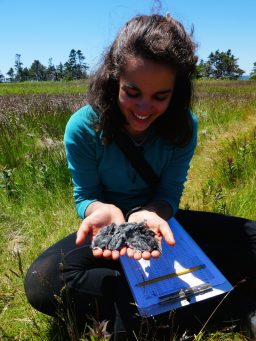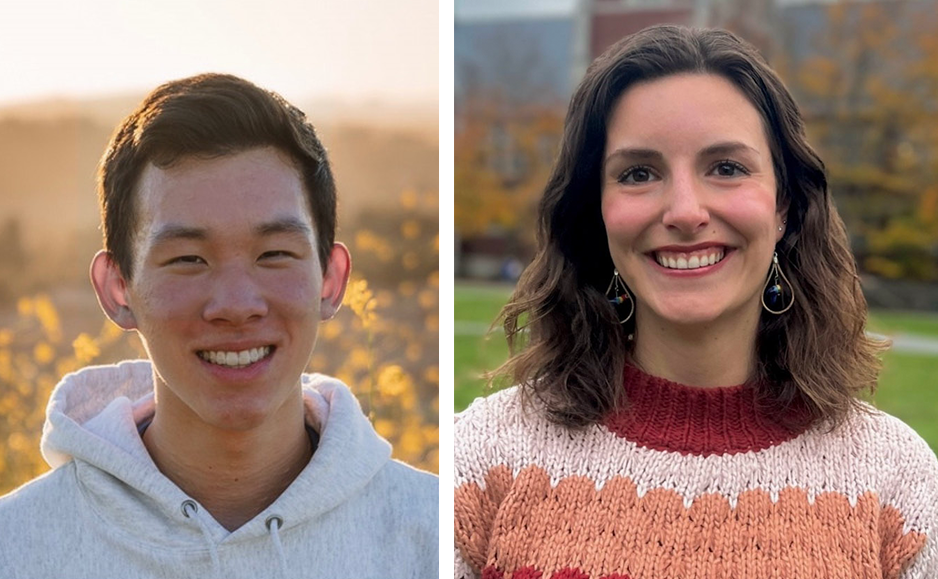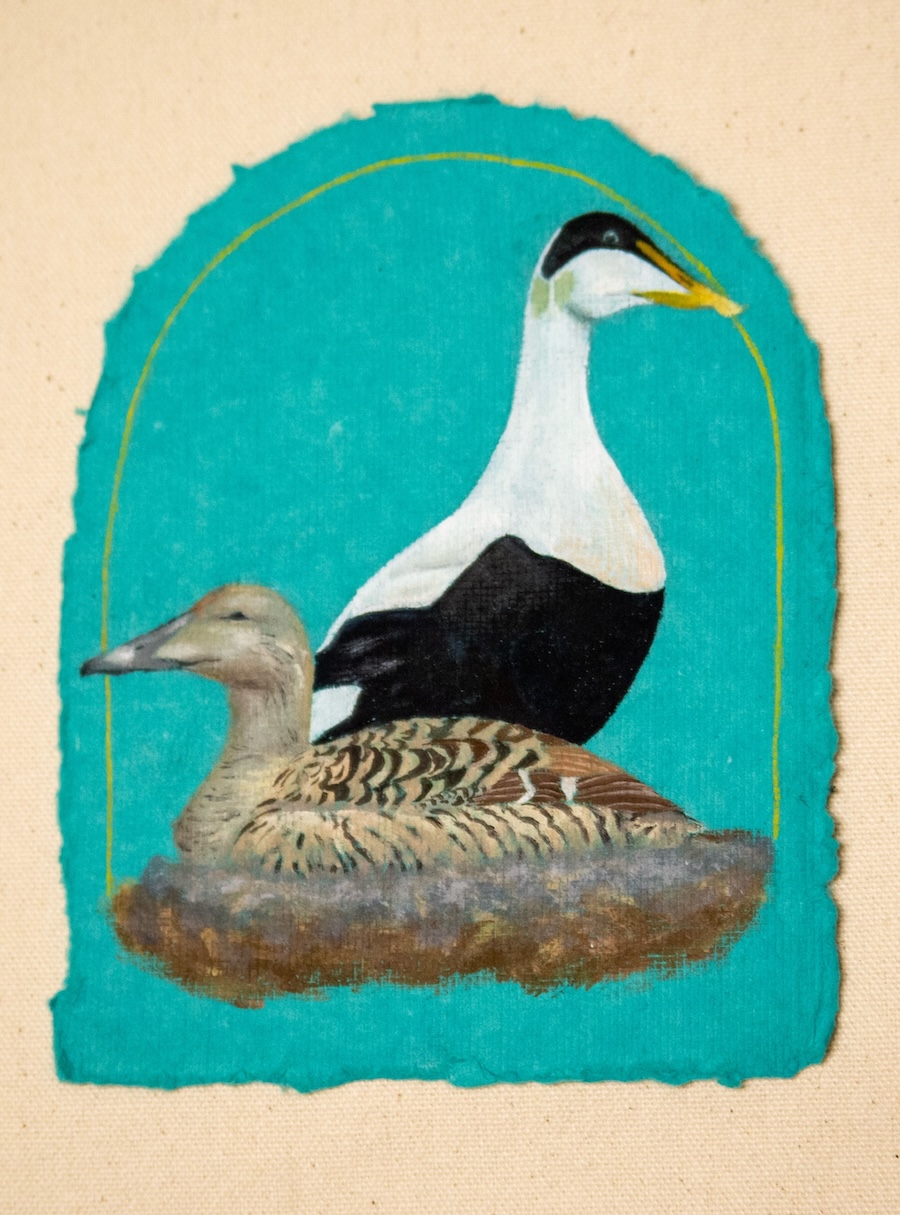Student’s Tree Swallow Research Reveals Clues into Their Decline
By Rebecca Goldfine
Birds that hunt for insects in mid-air, such as swallows, are declining across North America. To learn how to better protect them, scientists are studying every aspect of aerial insectivores’ lives to find out what threats they face at different stages.
Research by Liam Taylor ’17 is contributing to that effort. Taylor is the lead author of a new article, “Demographic drivers of collapse in an island population of Tree Swallows,” published in the American Ornithological Society’s peer-reviewed journal The Condor: Ornithological Applications—which is the world’s leading ornithological journal. Retired Bowdoin biology professor Nat Wheelwright also contributed to the study.
In 2014 and 2015, Taylor conducted research on the population of tree swallows that breed on Kent Island in the Bay of Fundy for his honors thesis. The island’s swallow population has fallen dramatically, from 202 adults in 1987 to nine in 2018. Each summer, students collect data on the swallows (this summer it was Brendan Murtha ’21).
With his co-authors, Taylor shows that the swallows’ survival rates during migrations or on their overwintering grounds have been the main drivers behind the population’s decline, rather than reproductive success or fledgling survival rates on the island.
Long-term data collected across the geographical range of birds can help researchers pinpoint which life stages have the largest impact on population declines, notes the American Ornithological Society. On Kent Island’s Bowdoin Scientific Station, researchers have been collecting data on Leach’s storm-petrels since 1954, and on tree swallows and Savannah sparrows since 1987.
Taylor is currently pursuing a graduate degree at Yale University’s Department of Ecology & Evolutionary Biology, where he is focusing on birds’ social behavior, sexual selection, behavioral ecology, and computational theory and tools for evolutionary research and ecological fieldwork.



